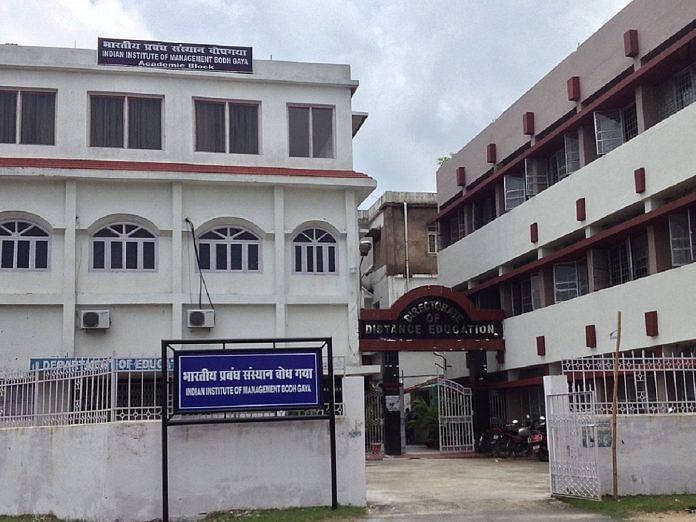While the IIM Act aims to free up the premier business schools from governmental control, many of the newer IIMs have argued in favour of it.
New Delhi: The central government is considering treating old and new IIMs differently on the issue of how much government control can be exercised over them due to dissenting views on what is a sensitive issue at the premier business schools.
At a meeting held with IIM chairpersons Wednesday, the Human Resource Development ministry is learnt to have indicated the possibility of different approaches for new and old IIMs, taking note of the concerns raised by many IIMs. Newer IIMs may have greater government representation and support on their board of governors than the older institutes.
The meeting was called by HRD minister Prakash Javadekar to discuss the rules to the new IIM Act. Chairpersons of 15 of the 19 IIMs are learnt to have attended the meeting in New Delhi. At the meeting, Javadekar is learnt to have underlined the need for cooperation, “checks and balances” and “accountability”.
Javadekar reportedly made a similar point at the 10 March meeting of the committee to formulate rules, where he pointed to the need to bring in “accountability” to the IIM boards and chairpersons. He also emphasised that it must be done in a way that the “spirit” of the IIM Act is adhered to.
What is the IIM Act?
The IIM Act 2017, which promises considerable autonomy and degree-granting powers to IIMs, came into effect on 30 January 2018. A committee is still formulating the rules to the act, differing views have emerged between new and old IIMs on the issue of retaining some level of governmental control.
It was felt after Wednesday’s meeting that older IIMs, with greater alumni network and brand presence, may not require as much governmental support as the newer IIMs, which have argued for governmental role to be retained. Many chairpersons of the newer IIMs also argued in favour of this.
Javadekar has asked the IIMs to prepare three-year action plans, seven-year strategy plans and 15-year vision plans.
It was also clarified by the ministry that IIMs may issue degrees right away, even for students passing out this year.
Governmental role
While the IIM Act aims to free up the premier business schools from governmental control, many new IIMs have argued in favour of it, to ensure that institutes and their directors are not left at the receiving end of the all-powerful IIM boards.
Case in point, there is considerable disquiet among IIM directors over Section 16 and subsections 4 and 7 of the IIM Act, 2017, which allows an institute’s board to initiate the removal of the IIM director on several counts. Many of the newer IIMs had expressed strong reservations on this issue, pointing out that an all-powerful board may wield its influence to ease out a director in the absence of any other checks and balances, which were present earlier through governmental control.
At a 17 February meeting of the committee for the framing of rules, it was finally agreed that a two-thirds majority of the board rather than a simple majority would be required to remove a director.



